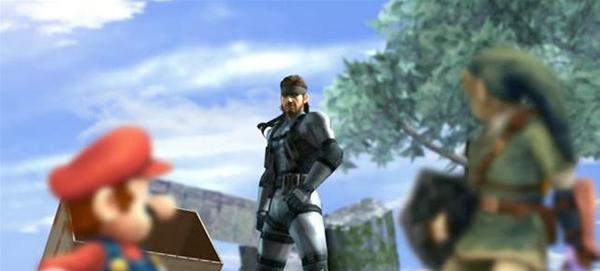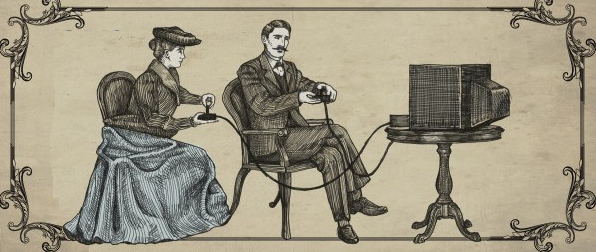 As a group – that is thirty something people that play games – we are pretty lucky. Having practically grown up alongside the medium, we witnessed first hand the ups and downs and trials and tribulations the industry has gone through pretty much from its beginnings to its relatively recent explosion into mainstream popularity. From when primal chaos reigned, to when the Stone Monkey emerged. It was irrepressible! I take it for granted, but the fact that my earliest video gaming memories were playing Raid on Fort Knox, Gorf and Jupiter Lander on the VIC-20 is actually pretty incredible. And it is through these collective memories that we, for all intents and purposes, are the primary sources for what will most likely be considered most important period in the games industry’s history.
As a group – that is thirty something people that play games – we are pretty lucky. Having practically grown up alongside the medium, we witnessed first hand the ups and downs and trials and tribulations the industry has gone through pretty much from its beginnings to its relatively recent explosion into mainstream popularity. From when primal chaos reigned, to when the Stone Monkey emerged. It was irrepressible! I take it for granted, but the fact that my earliest video gaming memories were playing Raid on Fort Knox, Gorf and Jupiter Lander on the VIC-20 is actually pretty incredible. And it is through these collective memories that we, for all intents and purposes, are the primary sources for what will most likely be considered most important period in the games industry’s history.
It may surprise you to know that I actually don’t read a lot about video games. It’s a bit old fashioned, but most of what I know comes from experience, from what I’d played for myself or heard friends talk about both in my school and University years. I like old games, but beyond those that I played between each innings of backyard cricket after school, I don’t have a thirst or desire to be the font of all knowledge. I’m a perpetual student of economic history and theory, and really, that’s about all my brain can – but more importantly wants to – support.
Sitting down and playing Super Smash Bros for Wii U with someone younger than half my age the other day made me realise that to his generation, video games are a constant history lesson. He would’ve been born around the same time Metroid Prime rebooted the franchise. He would’ve been born around the same time Hideo Kojima pulled his Raiden bait and switch on the world with Metal Gear Solid 2. He would’ve been around the same time Resident Evil was remade. To him Mortal Kombat: Deadly Alliance is old Mortal Kombat and Mortal Monday is practically jurassic. Basically his perceptions of the world of video games are entirely different to mine.
But it wasn’t the fact that time had passed, that I was getting old, or the weird and overdue reality check that Primal Rage isn’t the newest and hottest fan-dangled thing in arcades anymore that hit me hardest. It was that this kid knew things about games that came out when he was five years old, or in some cases, not even born. Games he hadn’t seen. Games he hadn’t played. Games he’d probably never play. Super Smash Bros is naturally a game that inspires nostalgia for the old and discovery for the young. But he had taken it beyond the game and was keen to regale an old hand at his knowledge. He had factoids on seemingly every aspect of the series past and present, from tidbits about Masahiro Sakurai’s modus operandi, to how Hideo Kojima worked to ensure that Solid Snake ended up in Super Smash Bros: Brawl. He hadn’t played Metal Gear Solid like I had as a teenager – he probably hadn’t ever played anything from Hideo Kojima’s storied career – but he knew how one of the most surprising franchise crossovers of last generation came to be. Sure, I have a hell of a lot of knowledge that I’ve accumulated along my 30-odd year journey with video games, but it’s never gone beyond that.I was being well and truly schooled by a true historian of the medium.
And then I spotted a recently purchased copy of Skate 3 below the TV. And it all made sense. He was a student of PewDiePie, of Did You Know Gaming, of YouTube. He didn’t know these things because he was there, he knew them because he had taken the time to read about them, to research them, to put it all in context. He was a scholar of the medium and with the benefit of hindsight, it’ll be people like him that write the industry’s equivalent of The History of the Decline and Fall of the Roman Empire. And in a bittersweet kind of way it’s people like me that he’ll be referencing when he writes about what it was truly like playing games in the 80’s and 90’s.

